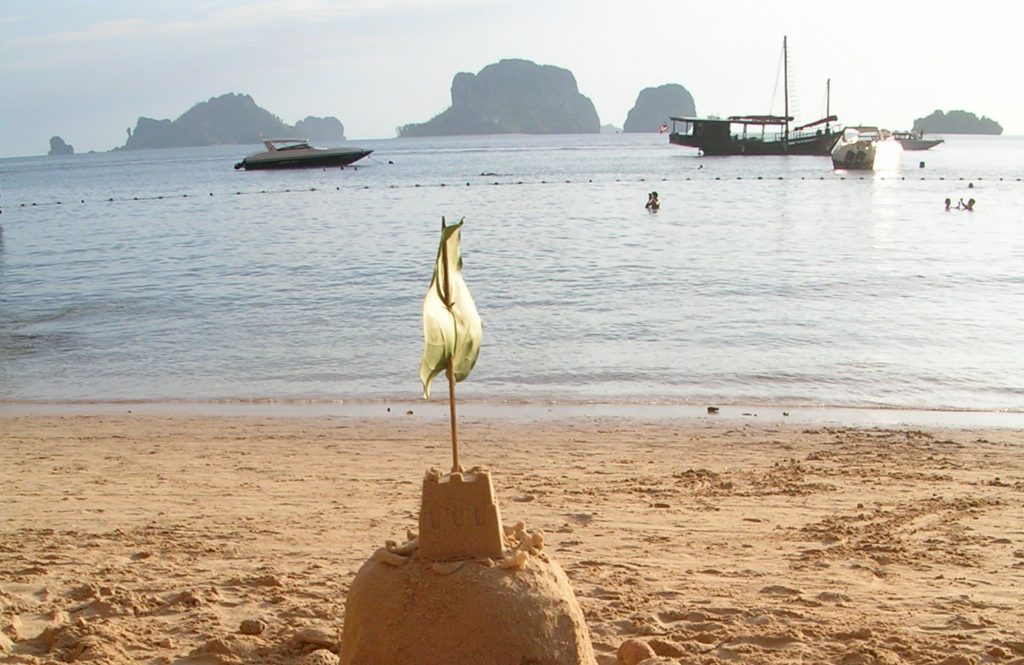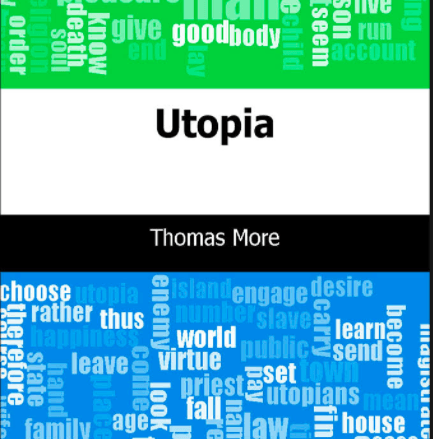One day, as I was walking around Ao Nang, I found Utopia—well, the book, anyway. I was intrigued by the name and picked it up in a used bookstore for 140 Baht. I must say that this has been the best purchase that I have made in Thailand and is one of the most amazing reads I’ve come across in YEARS. On my personal quest to find utopia, I actually ended up Finding Utopia!
Thomas More published this book in 1516. Remarkably, he has produced such a timeless piece of work that we can learn even today from the society that he describes in Utopia (or, No-Place). Because his ideas are outside of the box and very much in alignment with many factors I agree with wholeheartedly, I am going to describe briefly my favorite parts of Utopia.
Finding Utopia
More’s story begins when he and his friend Peter come across the most interesting worldly character: Raphael Nonsenso. After engaging in pleasantries, Raphael begins to go into a long account about his travels and experiences all around the world. Naturally, he had seen many cultures and could assimilate what worked in various societies and what did not.
Many societies were based on money, power, and greed–and because of this–he saw a huge dichotomy between the rich and the poor. Countries focused on growing and taking over land and vast territories by force, which meant war, death and economic hardship. These societies had many faults—all of them but one: Utopia.
Raphael had spent years in Utopia after discovering it. It was, in fact, the only sustainable culture and community he had ever seen. Not only were the people well educated and advanced, but they loved learning and seemed to be the happiest people he had ever encountered.
How could a society be so fulfilled and the people so incredibly happy?
Here are some of their secrets:
How To Find Utopia
- Utopia functions as a whole—all goods and services are made and distributed freely to families as needed.
- Their society and GDP was not compromised by having a fashion or entertainment industries.
- Land is equally distributed & maintained. There is no ‘cost’ for property, it was evenly distributed in small villages or compounds.
- Money is unnecessary because the town’s labor all goes towards the common good of providing ONLY what is necessary.
- Because less consumables are needed, there is less work that the overall population must do. (Much of this labor is cut out because they do not need to mass produce clothing, electronics, or such things.)
Why Work Unnecessarily?
“They never force people to work unnecessarily, for the main purpose of their whole economy is to give each person as much time free from physical drudgery as the needs of the community will allow, so that he can cultivate his mind—which they regard as the secret of a happy life” (p. 59).
- The people are taught detachment. When it comes to material goods and signs of wealth. In fact, it is instead a sign of something dreadful or even childish to display such garishness. Toilets are made of solid gold and those that have broken the law and become slaves wear huge chains of gold and gold jewelry. Sometimes children will wear gemstones but as they grow older they realize these are childish and give them away to the ‘babies’.
- Utopians believe in taking care of oneself and creating your own happiness. They consider it their right to enjoy life and seek out pleasure (as long as it does not hurt them or anyone else).
-
Since their basic needs are taken care of (food, shelter, water, community) one can focus more on serving others.
“Nobody owns anything, but everyone is rich—for what greater wealth can there be than cheerfulness, peace of mind, and freedom from anxiety?” (p. 110).
The location of Utopia is unknown, or else I would surely try to find it.
If you decide to take on some of the timeless lessons displayed in this book, such as:
- Stop putting money towards fashion or entertainment
- Let go of some of your personal property
- Work towards the common good of society
- Reduce your spending thereby reduce your work
- Detach from material goods and displays of wealth
- Cultivate joy, pleasure and happiness, and
- Serve others
…my guess is that you may find yourself in Utopia even if you aren’t even looking for it!



